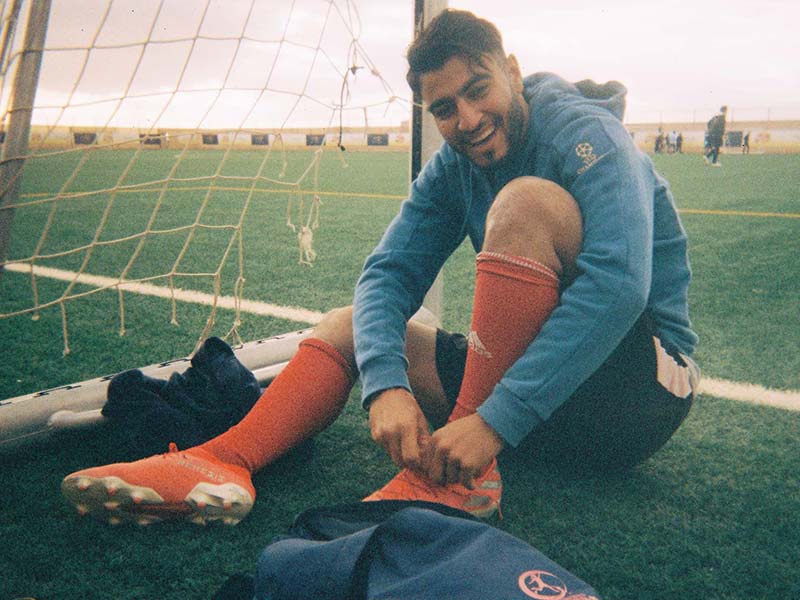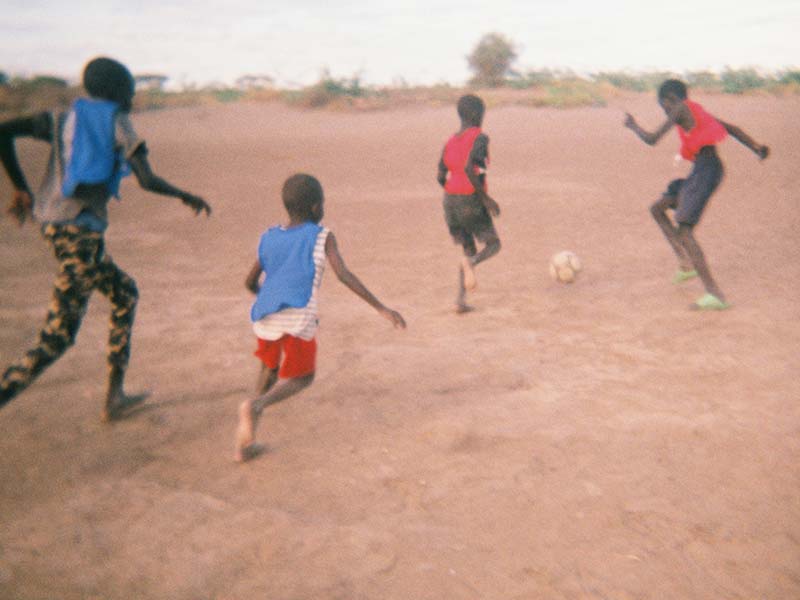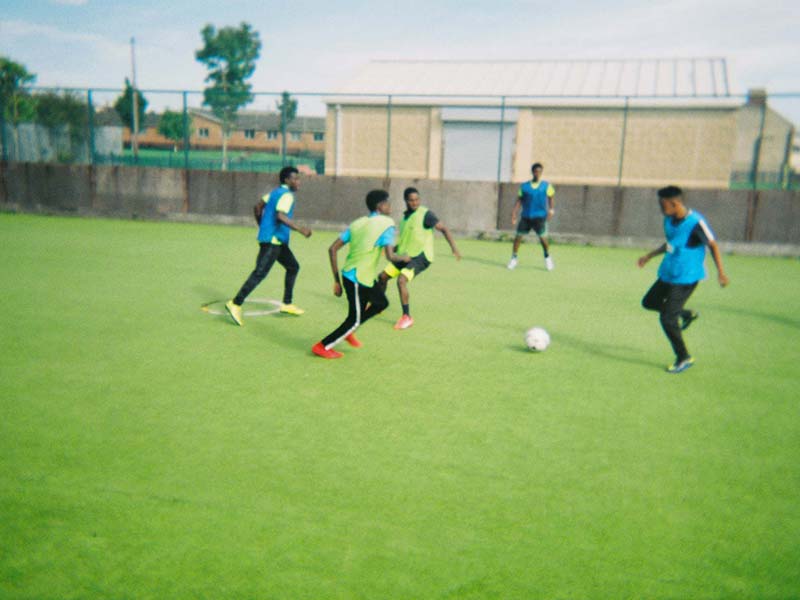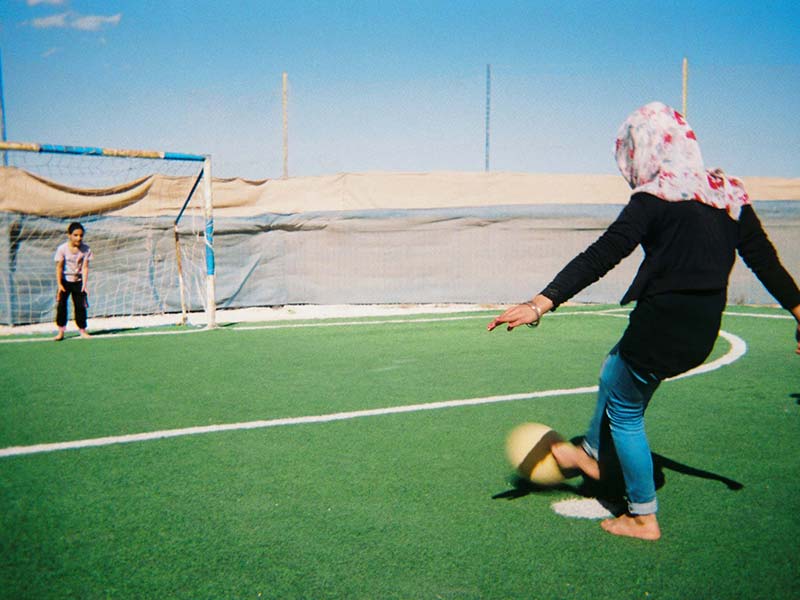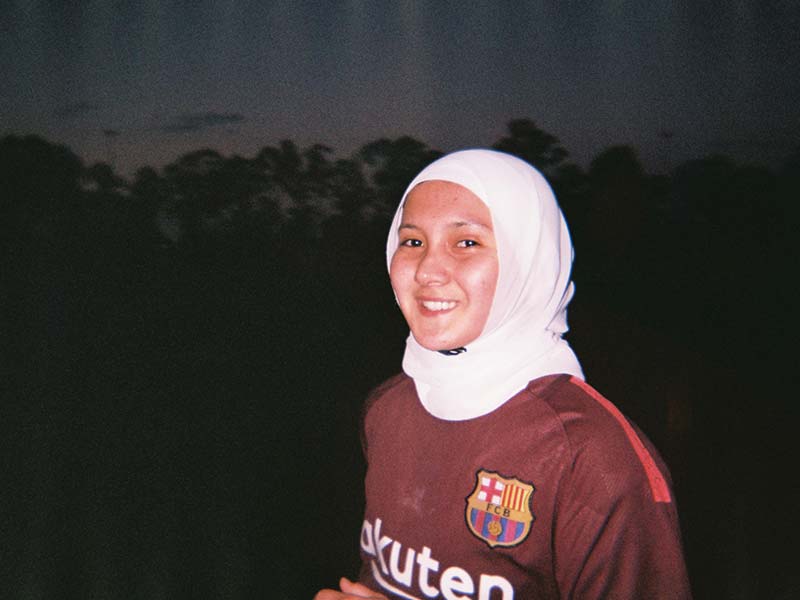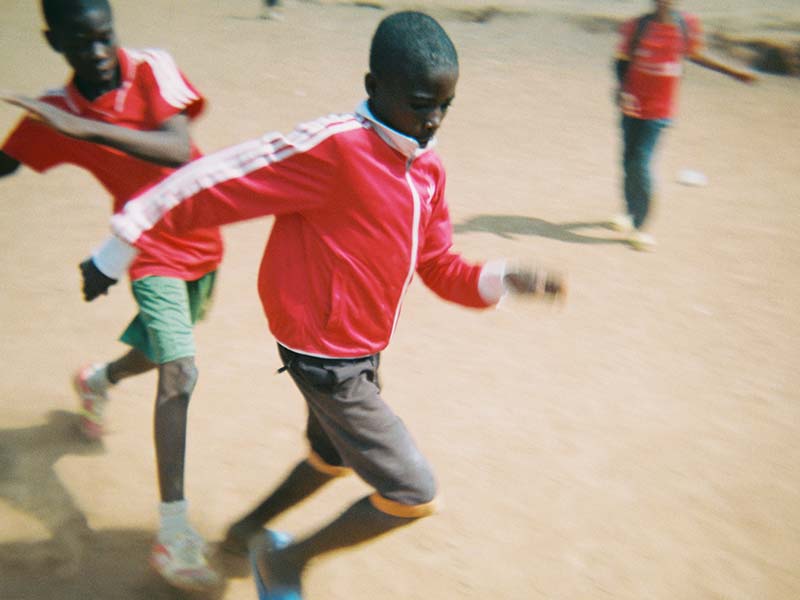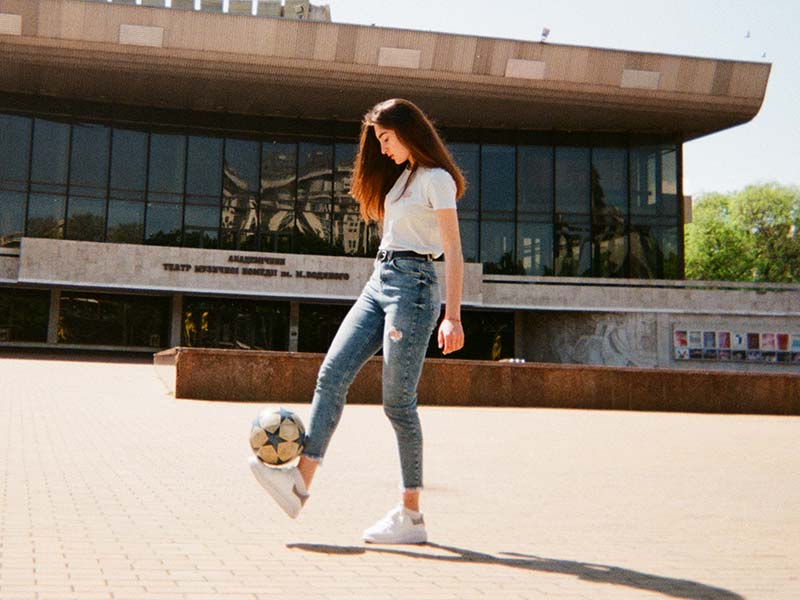Football: A glue that binds in Europe

Football: A glue that binds in Europe
© Goal Click/UNHCR/Liverpool FA/Jacob Viera
Europe experienced a large increase in refugee and migrant arrivals in 2015, with over 1 million arriving by sea and land from countries like Syria, Iraq, Afghanistan, Eritrea and Sudan. Since then, the numbers have declined but many still arrive seeking safety. This movement towards Europe continues to take a devastating toll on human life. These risks do not end once in Europe. Those moving onwards have reported numerous types of abuse, including being pushed back across borders.
UNHCR estimates that as of late 2018 there were 2.63 million refugees in Europe (excluding Turkey), with the largest host being Germany. UNHCR, working with partners, provides a broad range of support and assistance in Europe for refugees and asylum-seekers including humanitarian assistance, accommodation support, protection interventions and support for programmes to improve integration, including through sports.

© Goal Click/UNHCR/MFC Foundation/Mehdi Rakhshandeh
In Europe, many organisations work to engage new arrivals through football. From local NGOs such as the British Red Cross (UK) and Balon Mundial (Italy) to football clubs like Koblenz (Germany) and Middlesbrough (UK), football has played a powerful role in integration and providing opportunities for refugees such as Sadio, Daniele, Mehdi, and KB.
‘Everybody has their own beautiful story,’
Sadio, Italy (Balon Mundial)
“My name is Sadio Malang and I come from Senegal. I left Senegal because there was an on-going war in my region Casamance. I played football with my friends in Senegal. We always organised a tournament during the rainy season in my village, Sediou.
I arrived in Italy, in Rome, in 2012 and I lived for six months in a reception centre, and in 2014 I moved to Torino. There, in July, I met A.S.D. Balon Mundial and the President of the Association, Tommaso. Balon Mundial gave me the opportunity to have an internship at L’Oreal and this was a good experience for me. Then I found a job for one month with the Red Cross and then undertook civil service with the Red Cross for ten months.
Photo: © Goal Click/UNHCR/Balon Mundial/Sadio Malang

© Goal Click/UNHCR/Balon Mundial/Sadio Malang
‘Everybody has their own beautiful story,’
Sadio, Italy (Balon Mundial)
“My name is Sadio Malang and I come from Senegal. I left Senegal because there was an on-going war in my region Casamance. I played football with my friends in Senegal. We always organised a tournament during the rainy season in my village, Sediou.
I arrived in Italy, in Rome, in 2012 and I lived for six months in a reception centre, and in 2014 I moved to Torino. There, in July, I met A.S.D. Balon Mundial and the President of the Association, Tommaso. Balon Mundial gave me the opportunity to have an internship at L’Oreal and this was a good experience for me. Then I found a job for one month with the Red Cross and then undertook civil service with the Red Cross for ten months.
Now I’m working with refugees and finishing my third year of night school in electronics. I recently got my driving license. I will finish school this summer and I’m getting ready to start my diploma in electronics. The Covid-19 emergency has stopped my latest project with Balon Mundial, a job focused on immigrants and refugees. I want to open a help desk to help migrants and refugees with the information they need about bureaucratic things – how to search for a job, how to write a CV, how to find a flat, how to find cultural events and so on.
Football changed my life. Through football I met a lot of people, a lot of friends who helped me so much. Thanks to football I found a job.
Photo: © Goal Click/UNHCR/Balon Mundial/Sadio Malang

© Goal Click/UNHCR/Balon Mundial/Sadio Malang
Now I’m working with refugees and finishing my third year of night school in electronics. I recently got my driving license. I will finish school this summer and I’m getting ready to start my diploma in electronics. The Covid-19 emergency has stopped my latest project with Balon Mundial, a job focused on immigrants and refugees. I want to open a help desk to help migrants and refugees with the information they need about bureaucratic things – how to search for a job, how to write a CV, how to find a flat, how to find cultural events and so on.
Football changed my life. Through football I met a lot of people, a lot of friends who helped me so much. Thanks to football I found a job.
Most of the photos show the refugees’ football team of A.S.D. Balon Mundial, Senza Frontiere Football Club (it used to be called “Hearts of Eagle”). This is a football team formed by refugees and asylum-seekers that practices all year and during the summer participates in “Balon Mundial – the World Cup of Migrant Communities”. There are also photos of our team with the team of the Red Cross.
The guys are all refugees and asylum-seekers. Everybody has their own beautiful story. There is also a female team called Queens. For guys who came from Africa, football has a fundamental role because they can find a place to have fun, play and meet friends. They prefer football to staying home all day doing nothing. But I don’t know why it is important for Italian people. I play in a team with Italians and refugees. I like Italians, they are good at football, and I have a lot of very good friends here. I have a lot of plans! I wanted to get my driving license and finish school as soon as possible. Then I want to help other guys find a job and to find the right way in their life. And I want to open a Senegalese restaurant!”
Photo: © Goal Click/UNHCR/Balon Mundial/Sadio Malang
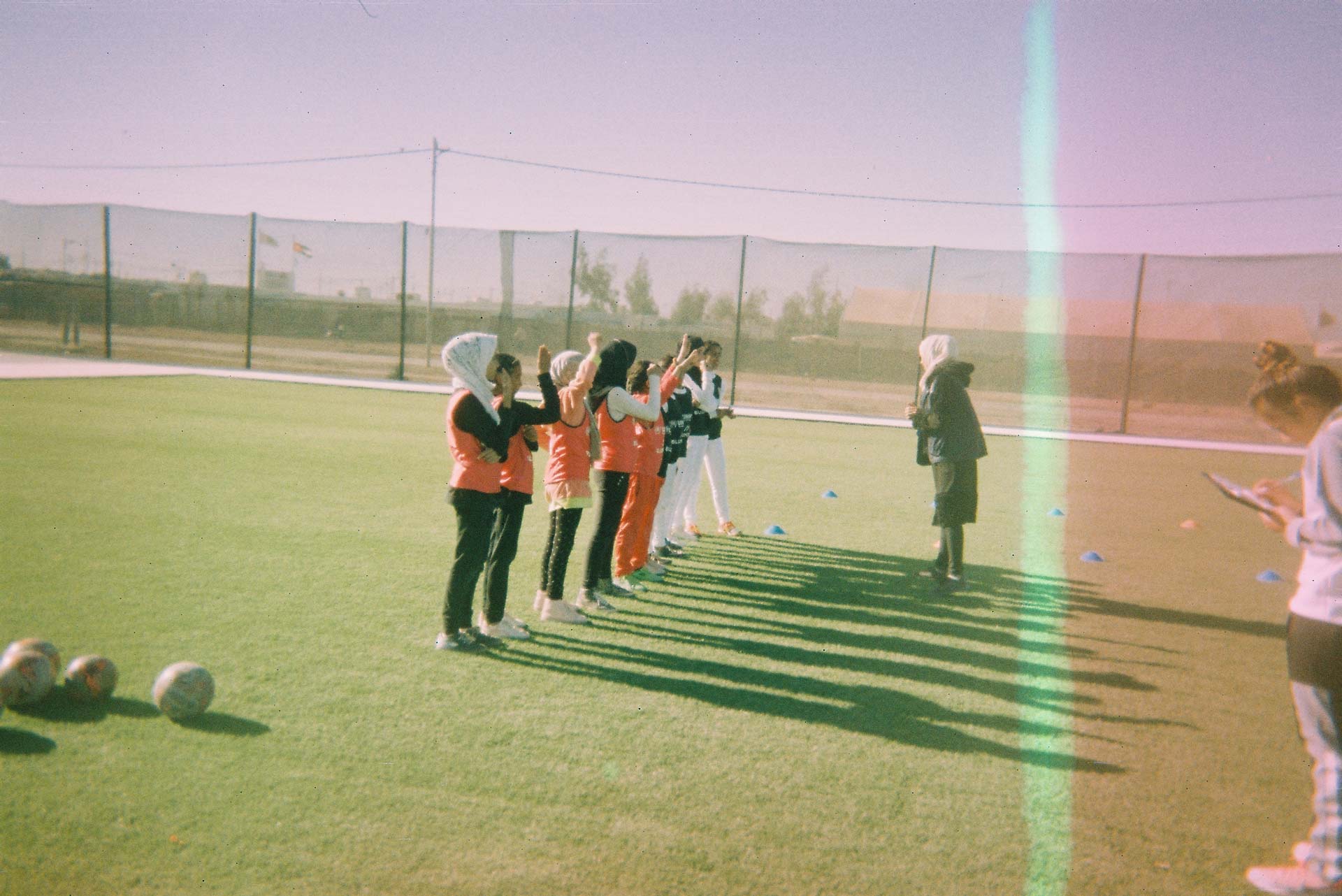
© Goal Click/UNHCR/Balon Mundial/Sadio Malang
Most of the photos show the refugees’ football team of A.S.D. Balon Mundial, Senza Frontiere Football Club (it used to be called “Hearts of Eagle”). This is a football team formed by refugees and asylum-seekers that practices all year and during the summer participates in “Balon Mundial – the World Cup of Migrant Communities”. There are also photos of our team with the team of the Red Cross.
The guys are all refugees and asylum-seekers. Everybody has their own beautiful story. There is also a female team called Queens. For guys who came from Africa, football has a fundamental role because they can find a place to have fun, play and meet friends. They prefer football to staying home all day doing nothing. But I don’t know why it is important for Italian people. I play in a team with Italians and refugees. I like Italians, they are good at football, and I have a lot of very good friends here. I have a lot of plans! I wanted to get my driving license and finish school as soon as possible. Then I want to help other guys find a job and to find the right way in their life. And I want to open a Senegalese restaurant!”
‘Football is the only constant in our lives,’
Daniele, Germany (TuS)
“My name is Daniele, I am a 24-year-old student. I’m currently living in Koblenz, Germany. I am now an IT student at the University. I work as a waiter during the summer vacations. Since I’m in a long-distance relationship with my local team in Syria, I decided to have an affair with German football team. I didn’t want to, plus I didn’t expect to develop feelings. But here I am, and all of my weekends are planned in advance.
The local team TuS Koblenz, which is playing in 5th division in Germany, decided to form a team called TuS International for the refugees who are living in Koblenz – to give them the chance to integrate into German society and establish a new life in Koblenz. The majority of the players are refugees who are living in a camp for asylum seekers – they are Syrian, Iranian, Afghani, Somalian, and Eritrean.
It doesn’t matter where you are from or what you’ve been through. There’s always something you share with other people despite the differences. There’s always a part of you seeking peace, love and normality. Football is the only constant in our lives.
Photo: © Goal Click/UNHCR
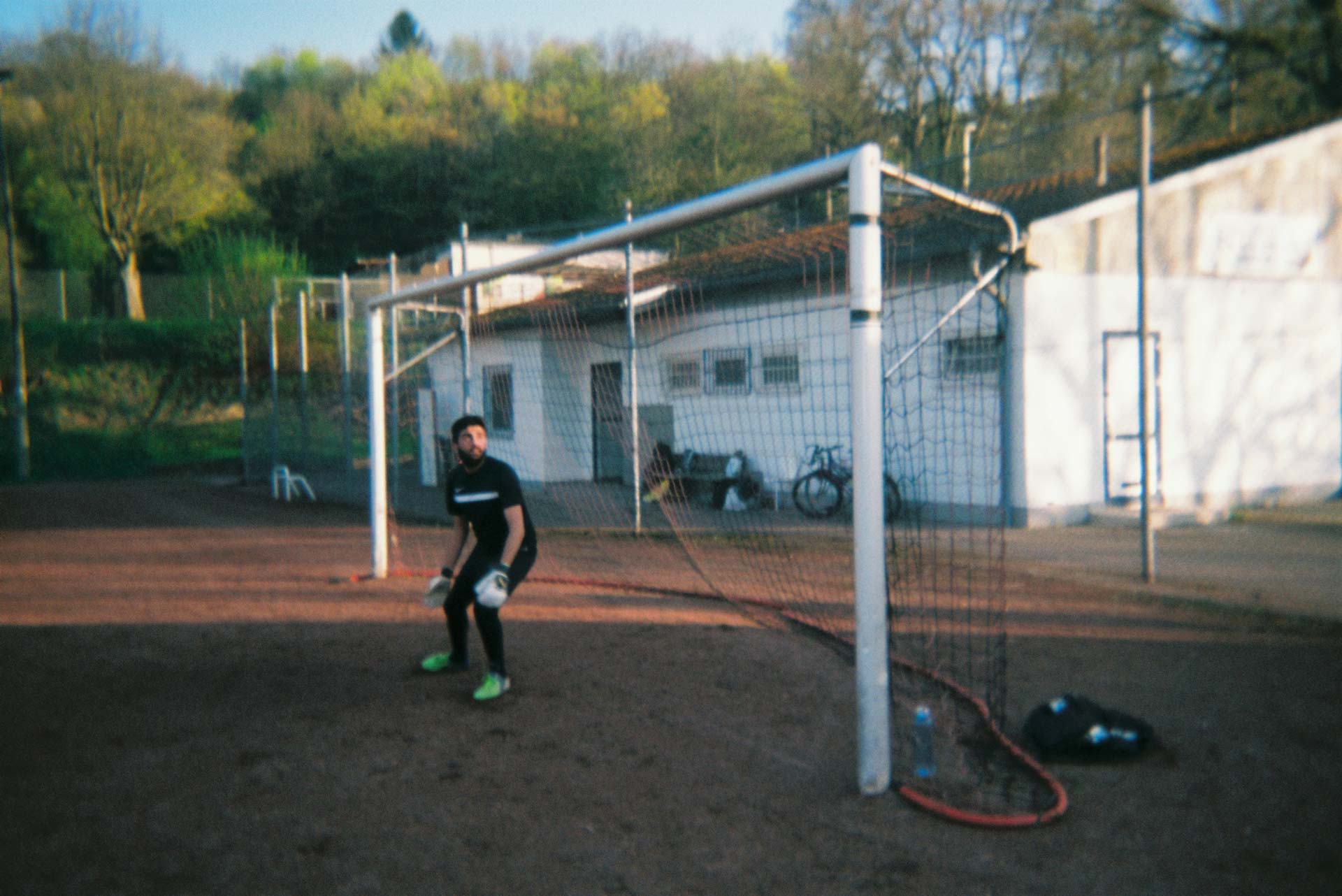
© Goal Click/UNHCR
‘Football is the only constant in our lives,’
Daniele, Germany (TuS)
“My name is Daniele, I am a 24-year-old student. I’m currently living in Koblenz, Germany. I am now an IT student at the University. I work as a waiter during the summer vacations. Since I’m in a long-distance relationship with my local team in Syria, I decided to have an affair with German football team. I didn’t want to, plus I didn’t expect to develop feelings. But here I am, and all of my weekends are planned in advance.
The local team TuS Koblenz, which is playing in 5th division in Germany, decided to form a team called TuS International for the refugees who are living in Koblenz – to give them the chance to integrate into German society and establish a new life in Koblenz. The majority of the players are refugees who are living in a camp for asylum seekers – they are Syrian, Iranian, Afghani, Somalian, and Eritrean.
It doesn’t matter where you are from or what you’ve been through. There’s always something you share with other people despite the differences. There’s always a part of you seeking peace, love and normality. Football is the only constant in our lives.
I started watching football intensively when I was nine. I had the internet at home, which was not a typical or usual thing to have – it was not like today. I got to know a forum called Kooora, where you could write news about your football team. It was an Arabic forum, one of the biggest in the Middle East. I started to post match reports in this forum and at the end of 2008, I was elected to be the representative for the electronic newspaper of my club in this forum.
I started to write news about my team. In 2009, I got my first job offer as a journalist with a Syrian website. I was 13. I sent in all my ID cards and information to get a journalist ID. But there was a problem with me being a minor, because they saw that as children working. So my application was not approved. I continued with my writing without an ID. I was always sitting in the stands, not by the field. In 2011 the war started. I decided to stay in touch with football, so I bought a camera and I started to document football in the time of war. I left Syria in 2015. I sold my professional camera when I left the country. I am planning to buy a new one here in Germany, and to go to the amateur leagues and start to take some shots again.
Now I play in the bottom division in the region. It’s actually more about the social side than football. Germany is a nation with 80 million people. I haven’t met them all but the ones I have met were “herzlich und sanft” (warm and gentle).
I want to move to Italy for one season and spend it with AS Roma. I’m planning to get a season ticket and live in Rome for a year. That includes attending all 38 matches of the Italian league plus Coppa Italia and the Champions League (I hope). I started saving money for the trip, but it’s going to take a while.”
Photo: © Goal Click/UNHCR

© Goal Click/UNHCR
I started watching football intensively when I was nine. I had the internet at home, which was not a typical or usual thing to have – it was not like today. I got to know a forum called Kooora, where you could write news about your football team. It was an Arabic forum, one of the biggest in the Middle East. I started to post match reports in this forum and at the end of 2008, I was elected to be the representative for the electronic newspaper of my club in this forum.
I started to write news about my team. In 2009, I got my first job offer as a journalist with a Syrian website. I was 13. I sent in all my ID cards and information to get a journalist ID. But there was a problem with me being a minor, because they saw that as children working. So my application was not approved. I continued with my writing without an ID. I was always sitting in the stands, not by the field. In 2011 the war started. I decided to stay in touch with football, so I bought a camera and I started to document football in the time of war. I left Syria in 2015. I sold my professional camera when I left the country. I am planning to buy a new one here in Germany, and to go to the amateur leagues and start to take some shots again.
Now I play in the bottom division in the region. It’s actually more about the social side than football. Germany is a nation with 80 million people. I haven’t met them all but the ones I have met were “herzlich und sanft” (warm and gentle).
I want to move to Italy for one season and spend it with AS Roma. I’m planning to get a season ticket and live in Rome for a year. That includes attending all 38 matches of the Italian league plus Coppa Italia and the Champions League (I hope). I started saving money for the trip, but it’s going to take a while.”
‘Having an interest in football really helps settling in,’
Mehdi, UK (MFC)
“My name is Mehdi Rakhshandeh and was born in Rasht, in the north of Iran. I played football regularly as a goalkeeper in Iran, not at a high level, just games with my friends from the local town. I was a sports photographer and reporter in Iran for 15 years. I worked for a news agency and was a photographer for the club Sepidrood Rasht S.C., but I left Iran in November 2017 and arrived in Middlesbrough in January 2018.
Growing up in Iran, the team I supported was Esteghlal FC but now I have adopted Middlesbrough as my team. I moved to London in November 2019 and have been doing photography in the city. Sometimes I play football with my friends. I want to work in a football club. Unfortunately, I don’t have a job right now, but I would like to find a job in London.
In the future I hope to return to my true passion of sports photography and journalism. I hope one day to be able to do this in my new adopted country. One day I could be photographing Middlesbrough lifting the Premier League trophy!
Photo: © Goal Click/UNHCR/MFC Foundation/Mehdi Rakhshandeh

© Goal Click/UNHCR/MFC Foundation/Mehdi Rakhshandeh
‘Having an interest in football really helps settling in,’
Mehdi, UK (MFC)
“My name is Mehdi Rakhshandeh and was born in Rasht, in the north of Iran. I played football regularly as a goalkeeper in Iran, not at a high level, just games with my friends from the local town. I was a sports photographer and reporter in Iran for 15 years. I worked for a news agency and was a photographer for the club Sepidrood Rasht S.C., but I left Iran in November 2017 and arrived in Middlesbrough in January 2018.
Growing up in Iran, the team I supported was Esteghlal FC but now I have adopted Middlesbrough as my team. I moved to London in November 2019 and have been doing photography in the city. Sometimes I play football with my friends. I want to work in a football club. Unfortunately, I don’t have a job right now, but I would like to find a job in London.
In the future I hope to return to my true passion of sports photography and journalism. I hope one day to be able to do this in my new adopted country. One day I could be photographing Middlesbrough lifting the Premier League trophy!
The photographs were taken in Middlesbrough during a tournament in Refugee Week called the Justice First Football Tournament. They mainly feature my teammates who played on that day and children who were there to watch. There is a fellow Iranian guy who came to the country as a refugee. On getting his status in the country he was moved from Middlesbrough, the town he regarded as home, to the south. He is now back in Middlesbrough where he has lots of friends and is studying at the University of Teesside. He still plays in the football sessions on a regular basis and is a great player!
My favourite photograph is of the little girl watching the football. I think it shows her passion for football. She is in an awkward position holding herself against the metal fence but is just excited and wants to watch the football no matter what. Football is important to me as it is a way of bringing people together and sharing a common love for the game. It also helps in life because it can make you feel lots of different emotions. From the thrill of winning a match, scoring a goal or saving a penalty, to the disappointment of losing or the pain of getting injured.
Photo: © Goal Click/UNHCR/MFC Foundation/Mehdi Rakhshandeh

© Goal Click/UNHCR/MFC Foundation/Mehdi Rakhshandeh
The photographs were taken in Middlesbrough during a tournament in Refugee Week called the Justice First Football Tournament. They mainly feature my teammates who played on that day and children who were there to watch. There is a fellow Iranian guy who came to the country as a refugee. On getting his status in the country he was moved from Middlesbrough, the town he regarded as home, to the south. He is now back in Middlesbrough where he has lots of friends and is studying at the University of Teesside. He still plays in the football sessions on a regular basis and is a great player!
My favourite photograph is of the little girl watching the football. I think it shows her passion for football. She is in an awkward position holding herself against the metal fence but is just excited and wants to watch the football no matter what. Football is important to me as it is a way of bringing people together and sharing a common love for the game. It also helps in life because it can make you feel lots of different emotions. From the thrill of winning a match, scoring a goal or saving a penalty, to the disappointment of losing or the pain of getting injured.
Football played a big role in my life as I got accustomed to my new surroundings in Middlesbrough in particular. I played each week with MFC Foundation and it helped me to meet new people, learn about my new surroundings and improve my English! The football club really made me feel welcome and part of the community.
Everyone in Middlesbrough supports their local team. It is the most important thing in their lives, so having an interest in football really helps settling in. I lived a short way from the stadium and on Saturdays could hear the noise – the singing and cheering and all of the people walking by my house on the way to the match. They are so colourful and noisy, especially when Middlesbrough win. I have been lucky enough to watch them a few times and I was trying to learn the songs. I can honestly say now that Middlesbrough FC is my favourite football club! There was a real mixture of people in our weekly football sessions of different races and religions. In any one session there would be people from Africa, Iran, Syria and obviously England. The English people I met have all been very nice and welcoming to me.”
Photo: © Goal Click/UNHCR/MFC Foundation/Mehdi Rakhshandeh

© Goal Click/UNHCR/MFC Foundation/Mehdi Rakhshandeh
Football played a big role in my life as I got accustomed to my new surroundings in Middlesbrough in particular. I played each week with MFC Foundation and it helped me to meet new people, learn about my new surroundings and improve my English! The football club really made me feel welcome and part of the community.
Everyone in Middlesbrough supports their local team. It is the most important thing in their lives, so having an interest in football really helps settling in. I lived a short way from the stadium and on Saturdays could hear the noise – the singing and cheering and all of the people walking by my house on the way to the match. They are so colourful and noisy, especially when Middlesbrough win. I have been lucky enough to watch them a few times and I was trying to learn the songs. I can honestly say now that Middlesbrough FC is my favourite football club! There was a real mixture of people in our weekly football sessions of different races and religions. In any one session there would be people from Africa, Iran, Syria and obviously England. The English people I met have all been very nice and welcoming to me.”
‘My asylum situation made me sad, football made me happy,’
KB, UK (British Red Cross) “
I am from Guinea. I arrived in the UK in 2016 and I was granted refugee status last year. I am currently studying Level 2 plastering in college. Football is my favourite thing. When I was born, I loved football. When I was small, a child, people were telling me to play with the adults. I was just as good as them, but they were so big I was scared they would break my bones!
Guinea has good people, and good players, but not much football training. I looked at Lionel Messi, and I wanted to play like him. Watching football, it makes me very angry and excited. But I love it, nothing can compare.
I know I play football very well. Football is my dream. I don’t like studying but I want to play football! My mum used to laugh at me and disliked it when I played football in Guinea – because my clothes would be dirty! I would play all day and I would be scared to show my mum my dirty clothes. There is no opportunity to play professionally in my home of Guinea. Football is my favourite thing – when I think about football, they are my favourite dreams.
Photo: © Goal Click/UNHCR/British Red Cross

© Goal Click/UNHCR/British Red Cross
‘My asylum situation made me sad, football made me happy,’
KB, UK (British Red Cross) “
I am from Guinea. I arrived in the UK in 2016 and I was granted refugee status last year. I am currently studying Level 2 plastering in college. Football is my favourite thing. When I was born, I loved football. When I was small, a child, people were telling me to play with the adults. I was just as good as them, but they were so big I was scared they would break my bones!
Guinea has good people, and good players, but not much football training. I looked at Lionel Messi, and I wanted to play like him. Watching football, it makes me very angry and excited. But I love it, nothing can compare.
I know I play football very well. Football is my dream. I don’t like studying but I want to play football! My mum used to laugh at me and disliked it when I played football in Guinea – because my clothes would be dirty! I would play all day and I would be scared to show my mum my dirty clothes. There is no opportunity to play professionally in my home of Guinea. Football is my favourite thing – when I think about football, they are my favourite dreams.
When I was thinking about my asylum situation and it made me sad, football made me happy. I love going on trips to play for other teams (like when we went on two trips with the Red Cross). I want to make a Red Cross football team. Can we do that please?
I still play football in the park with my friends, but I do not think I am good enough for professional football anymore. Everything I have been through has really affected my fitness levels and it is too late to be professional. I also play with British people in the park. I like playing with British people and like being part of their community.
I want to do lots of things! I’d like to be an engineer, or even better, to be a general commander in the British Army! Refugees can’t be in the Army, but I hope that one day it will be possible. I would be proud to be in the British Army and protect the country that has protected me. I want to help fight problems in other countries. If I can’t do that, I want to be a businessman, so I have a nice car, nice clothes and work for a big company.”
Photo:Goal Click/UNHCR/British Red Cross

© Goal Click/UNHCR/British Red Cross
When I was thinking about my asylum situation and it made me sad, football made me happy. I love going on trips to play for other teams (like when we went on two trips with the Red Cross). I want to make a Red Cross football team. Can we do that please?
I still play football in the park with my friends, but I do not think I am good enough for professional football anymore. Everything I have been through has really affected my fitness levels and it is too late to be professional. I also play with British people in the park. I like playing with British people and like being part of their community.
I want to do lots of things! I’d like to be an engineer, or even better, to be a general commander in the British Army! Refugees can’t be in the Army, but I hope that one day it will be possible. I would be proud to be in the British Army and protect the country that has protected me. I want to help fight problems in other countries. If I can’t do that, I want to be a businessman, so I have a nice car, nice clothes and work for a big company.”

